Imagine a world where the Qin Dynasty never united China in 221 BCE.
In this alternate timeline, China remains fragmented into warring states, each with its own unique culture and traditions.
How would this change history?
Without a unified China, the world as we know it would be dramatically different.
Let's explore the possibilities and consequences of this fascinating scenario.
Continued Warring States Period
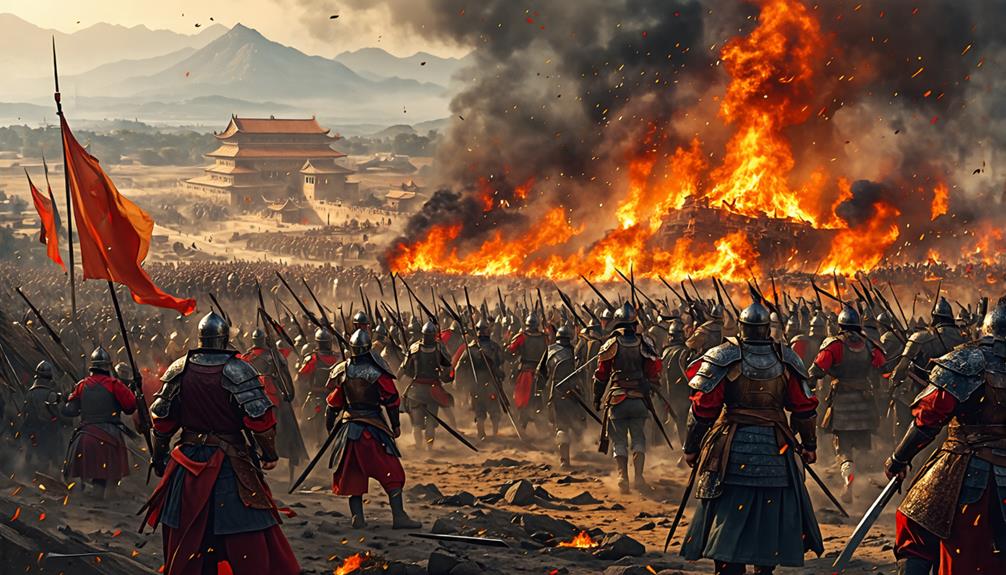
In an alternate history where the Warring States period continued indefinitely, China may have remained fragmented into competing kingdoms.
One theory suggests this could have led to a more diverse array of cultures, languages, and regional identities developing independently across the land.
It's possible that without a unified empire, China's influence and power on the global stage would have been diminished compared to our timeline.
However, it's also conceivable that one of the warring states could have eventually emerged victorious centuries later to unify China, similar to how the Qin Dynasty did historically in 221 BCE.
Fragmented Political Landscape
If the Warring States period in China had continued indefinitely, it's possible that the region would have remained politically fragmented. Historians theorize this could have led to ongoing conflicts between rival states seeking to expand their power and territory.
Such a scenario may have resulted in a very different China, with trade, culture, and technology developing along divergent paths in the various states.
While China was eventually united under the Qin Dynasty in 221 BCE, a later period of disunity did occur during the aptly named Five Dynasties and Ten Kingdoms period from 907-979 CE.
This era saw multiple states once again vying for control, echoing some aspects of the earlier Warring States period. However, this time of division was relatively short-lived compared to the centuries-long Warring States era.
Divergent Cultural Development
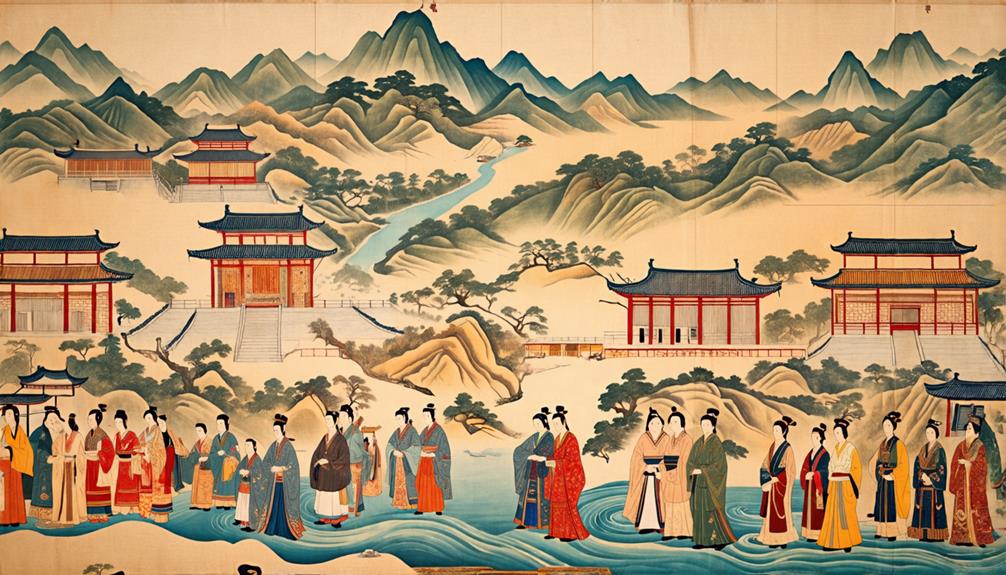
In an alternate timeline, a fragmented political landscape in ancient China could have significantly altered the region's cultural development. One theory suggests that distinct traditions, philosophies, and artistic styles would have emerged in each state, leading to localized interpretations of Confucianism, Taoism, and Legalism.
It's possible that unique architectural styles reflecting regional preferences would have developed, along with diverse literary and artistic traditions shaped by local histories. Limited cultural exchange could have fostered greater diversity among the states.
Interestingly, a similar scenario did occur centuries later during the Warring States period, which saw the rise of competing philosophies and cultural traditions among the various states vying for power.
Technological Advancements and Competition
In an alternate timeline where ancient China remained divided, the intense rivalry between kingdoms might've accelerated technological progress as each state raced to gain advantages over its neighbors.
Historians theorize that this competition could have spurred more rapid advancements in areas like weapons, infrastructure, and farming methods.
It's possible that key innovations such as the crossbow, iron casting techniques, and advanced irrigation systems would have emerged earlier than they did historically, born out of the pressing need to survive and conquer.
Interestingly, China was briefly divided again after the fall of the Qin Dynasty, so one could argue that this scenario did play out to some extent later in history, albeit for a much shorter duration.
Economic Implications and Trade
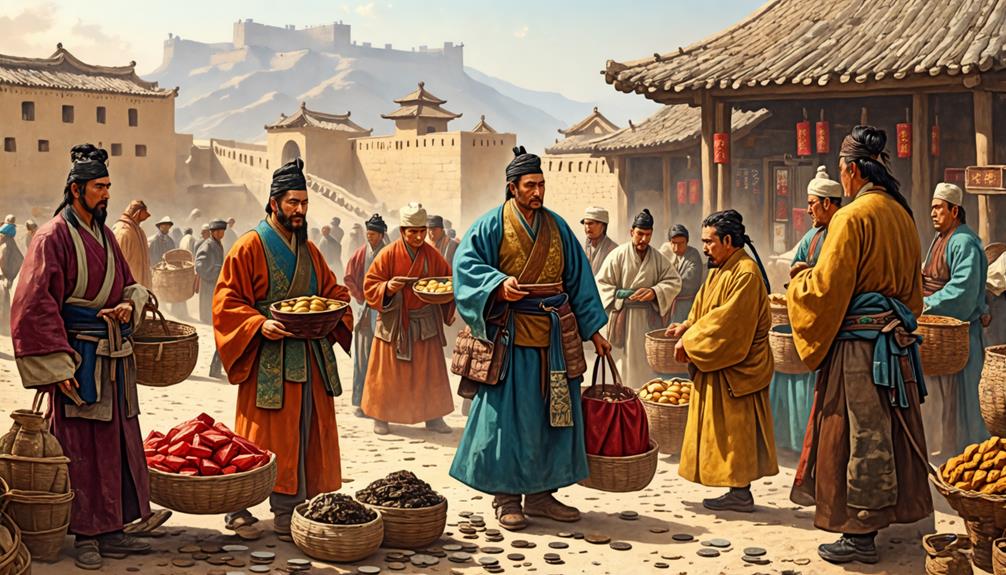
One theory is that without the Qin Dynasty uniting China, the country would have remained politically fragmented with competing states. This could have led to trade barriers, lack of standardized currency and measures, and slower infrastructure development, resulting in a less efficient and decentralized economy.
It's possible that China's economic growth and ability to engage in large-scale trade would have been hindered.
However, it's also conceivable that unification could have occurred later under a different dynasty, leading to similar economic outcomes but at a later point in history.
Military Strategies and Alliances
In an alternate timeline, China's fragmented political landscape during the Warring States period could have led to a prolonged era of conflict and constantly shifting alliances between rival kingdoms.
One theory suggests that this might've resulted in a complex web of alliances, with states like Qi aligning with Yan and Wei to counter the power of Chu, which had formed partnerships with Zhao and Han.
It's possible that this scenario could have played out at a later date, even if the specific states and alliances were different.
Such a situation might've meant significant changes to the balance of power in the region, with no single state able to achieve the same level of dominance as Qin did in our timeline.
Philosophical and Religious Diversity
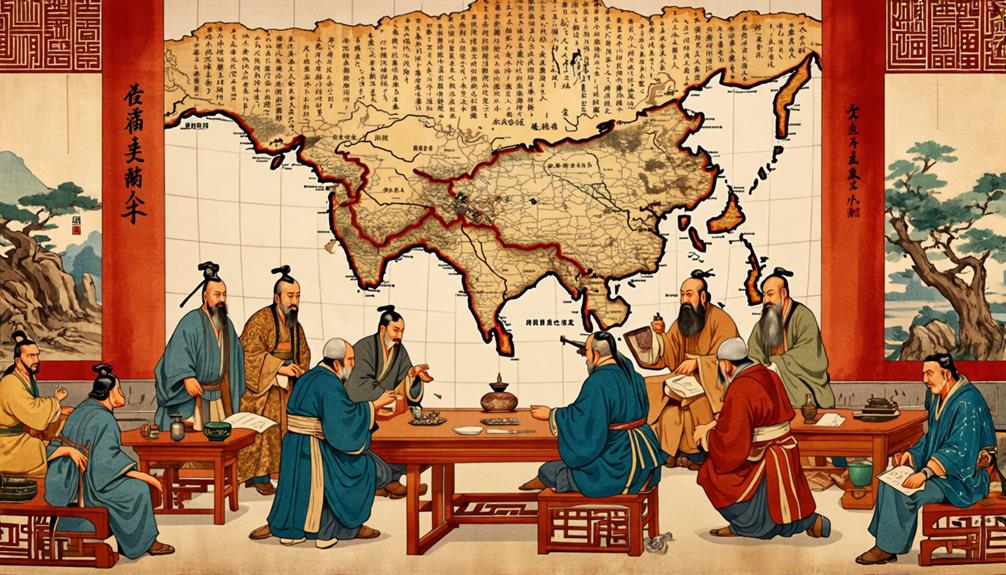
In an alternate history where China remained fragmented, the philosophical and religious landscape would have likely stayed diverse. One theory is that Confucianism and its offshoots would have developed along regional lines, adapting to local customs and beliefs. Daoism and folk religions could have continued to thrive, with each region having its own unique traditions.
Buddhism, spreading from India and Central Asia, might've found even more receptive audiences in a divided China. Without a centralized authority to regulate or suppress religious movements, Buddhism could have become more deeply entrenched in certain regions. This scenario of a philosophically and religiously diverse China did occur to some extent during periods of disunity, such as the Six Dynasties period (220-589 CE) and the Five Dynasties and Ten Kingdoms period (907-979 CE).
The exchange of ideas among these various schools of thought could have led to innovative syncretic philosophies and religious practices. However, it's also possible that the lack of a unified empire could have hindered the spread of ideas and limited the development of Chinese philosophy and religion as a whole.
Ultimately, the actual outcome of this alternate history would have depended on a complex interplay of social, economic, and political factors.
Alternate Historical Timelines
If the Qin Dynasty had failed to unite China, the region could have remained fractured into competing states. Historians theorize this may have led to more diverse cultural development, as philosophies like Confucianism and Taoism evolved in relative isolation.
Disunity would have altered China's relationships with neighboring regions and the wider world. While China was later unified under the Han Dynasty, an earlier failure by the Qin to centralize power would have shifted the timeline and nature of these historical events.
Conclusion
Without the Qin Dynasty's unifying thread, China's tapestry would've remained a vibrant patchwork of competing states.
You'd witness a kaleidoscope of cultures, philosophies, and innovations shaped by centuries of rivalry.
Trade routes would've been rocky paths, economies would've marched to different drummers, and dynasties would've risen and fallen like tides.
China's destiny would've taken a profoundly different turn, forever altering its mark on the global stage.
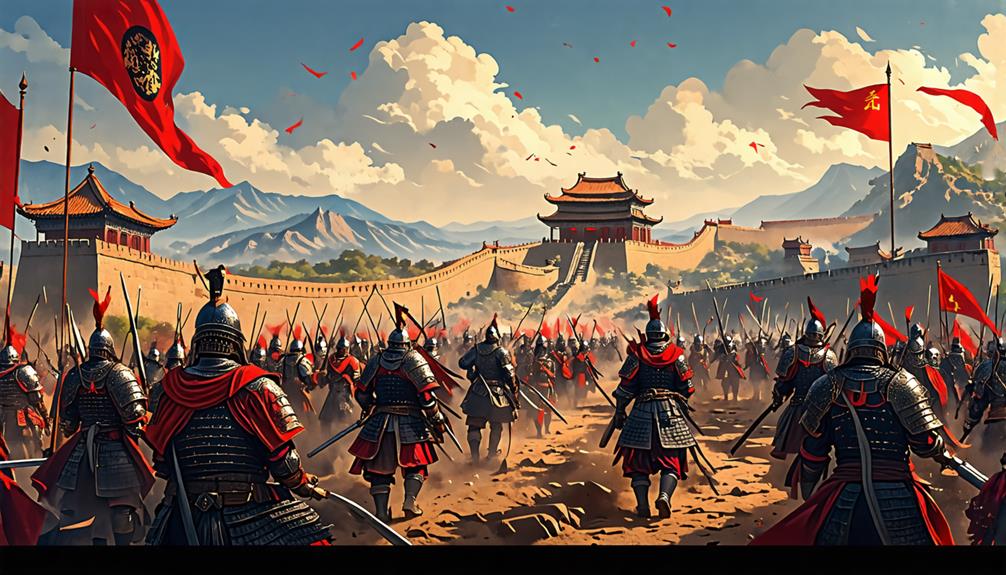
Leave a Reply